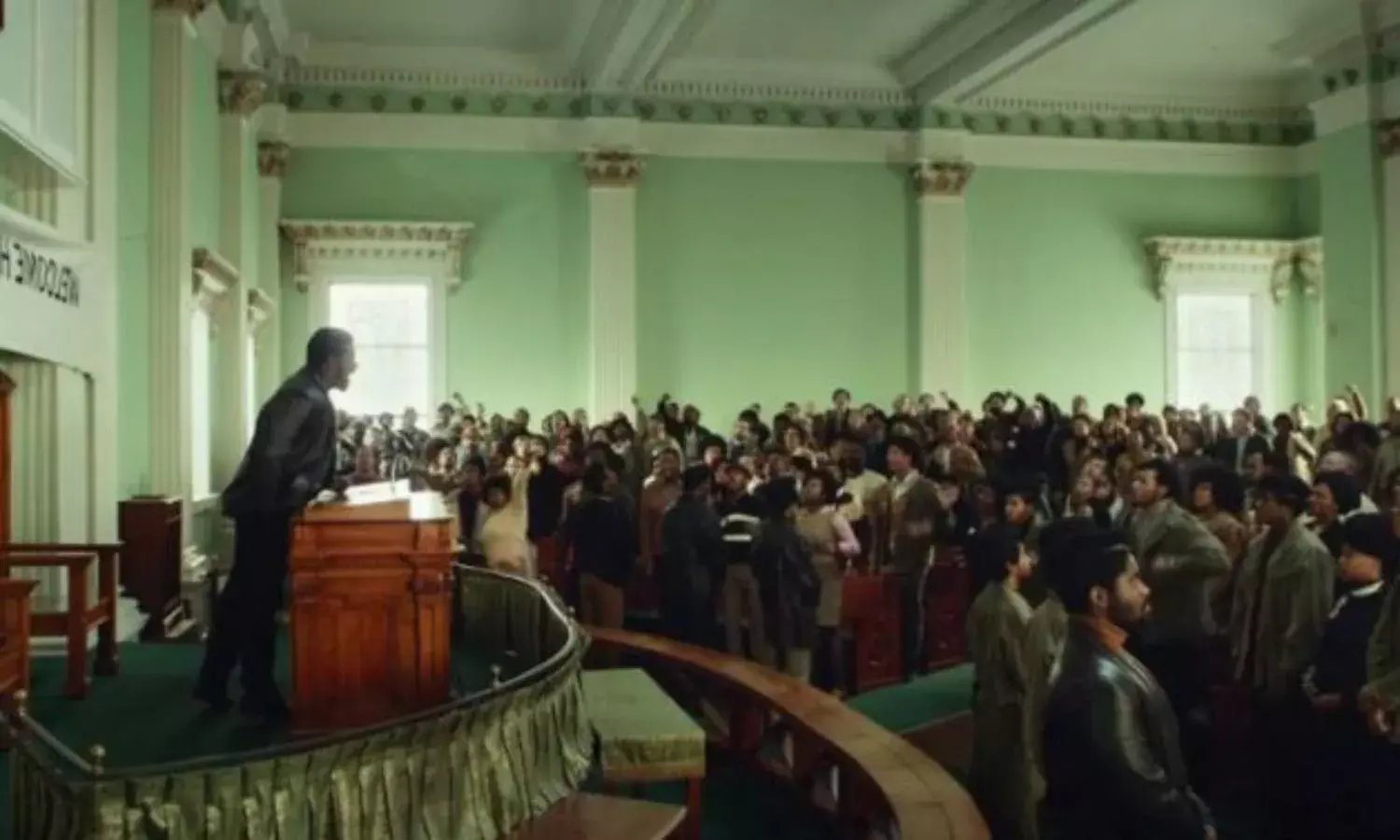An Energetic Film on Black and White
Judas and the Black Messiah review;

The first thoughts that come to mind the second one hears the words ‘Black Panthers’ are style, revolution, and general badassery. Shaka King’s Oscar best picture nominee Judas and the Black Messiah tells the story of the love, pain, inspiration, and dedication behind these words.
The film is about Bill O’Neal, the FBI informant who infiltrated the Chicago chapter of the Black Panthers in the late 1960s and eventually betrayed their charismatic deputy chairman Fred Hampton to his assassination.
Taken from some of the most powerful moments in US history, scenes like Hampton’s powerful speeches which inspired thousands, his ambition to build a rainbow coalition of the oppressed in America, and the FBI’s relentless mission to bring down the Panthers by hook or crook, exude an energy and grace rare and difficult to create in cinema.
Conversely, the film seems to lose steam every time the narrative turns to the personal lives or relationships between the main characters.
As the young fireball Fred Hampton, Daniel Kaluuya turns in what is likely his most emotionally and socially impactful performance since the enigmatic Get Out (2017). Some of his speeches in the film will have you riled up for his cause and thumping your chest in unison with his every command.
But the real find of the film is Lakeith Stanfield, whose evocative eyes breathe life into one of the complex characters of the US civil rights movement: Bill O’Neal. It’s no easy task to have audiences empathise with this truly Judas-esque figure, but Stanfield does that and does it with such swag that it’s hard not to consider him a serious contender for this year’s Oscar for best supporting actor.
But while style, energy, and emotional impact are the highlights of King’s work, the flipside is its tendency to paint things in black and white.
This is disappointing considering that Hollywood in general has long moved on from the idea of heroes and villains and usually depicts more complex and layered characters at most turns. Whether its Martin Sheen’s menacing but overtly racist J Edgar Hoover or Daniel Kaluuya’s fiery but morally spic and span Hampton, the characters seem stuck in their one-dimensional moralities.
The only characters who have complexity and conflict within themselves are Stanfield’s Bill, who is as complex a character from real life as they come, and Jesse Plemons’ FBI agent Roy Mitchell.
Plemon’s Mitchell, dedicated to fulfilling the mission to bring down the Black Panthers as he is to not letting racism play a part in his life, is perhaps the character who will stay with me the longest after the film is over.
Racism is a curse that permeates every aspect of our lives, and the Civil Rights Movement and the Black Panthers’ work contributed greatly to making Americans the more relatively accepting society they are today – but one does wish the filmmakers had brought a greater degree of nuance and objectivity to their storytelling than is evident here.
It is one thing to feel the need to hammer in certain emotional highs and lows in history, but a whole other mistake to assume that history was ever so Black and White.
As a movie, Judas and the Black Messiah is fun, energetic, impactful, and indeed important. As a historical document, it is too unidimensional to take seriously.

